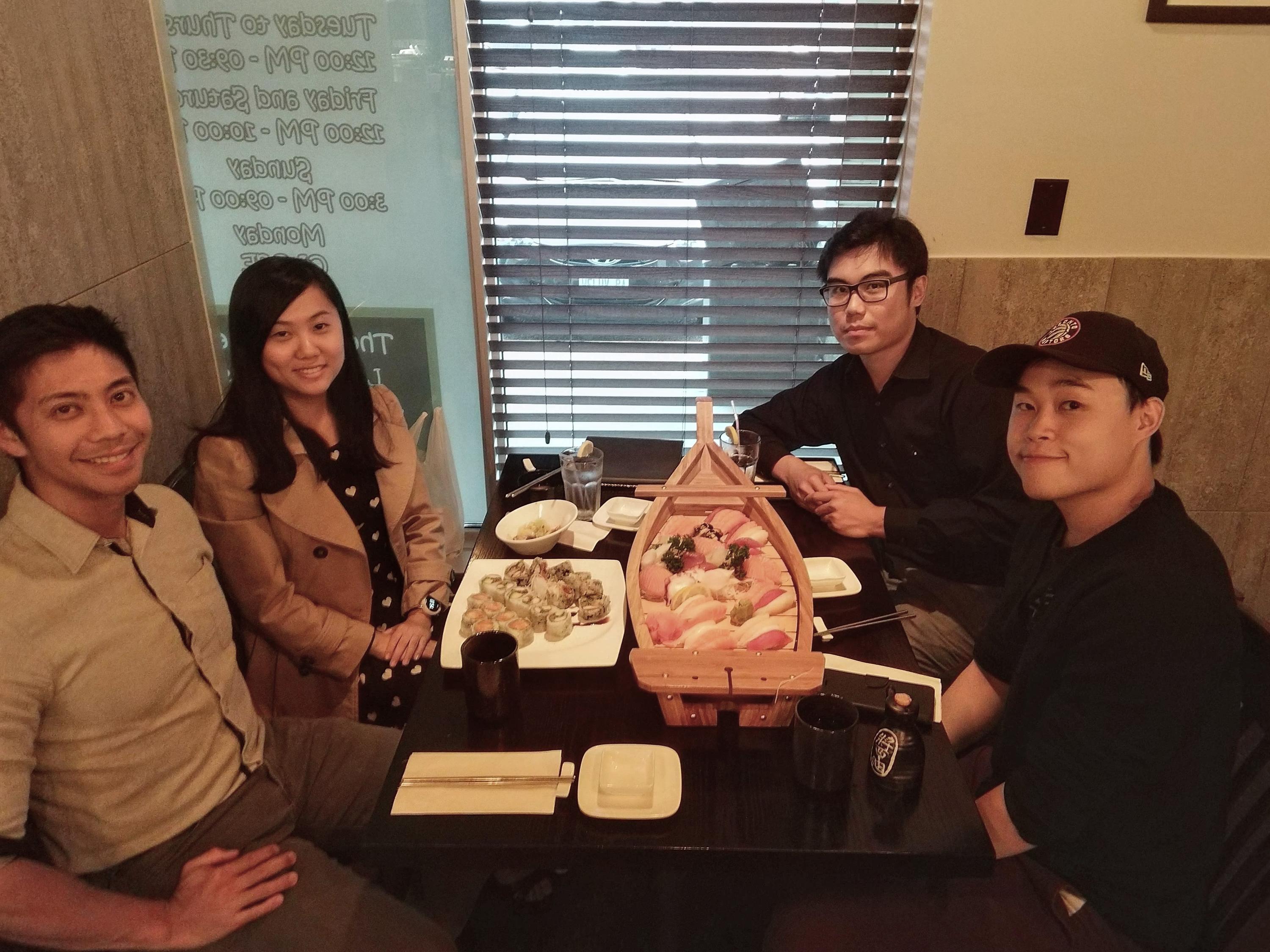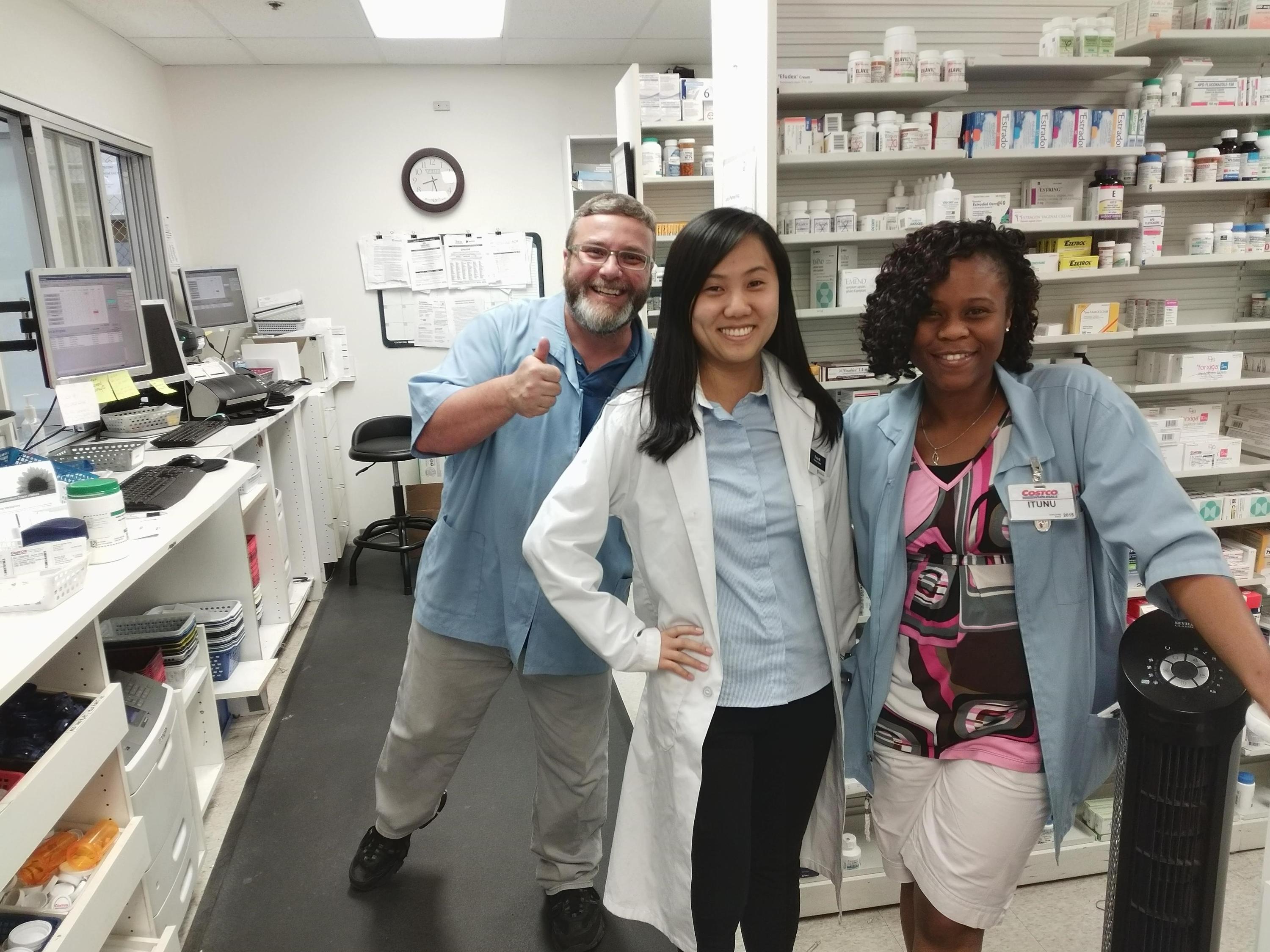Paula Wang, Rx2019 - Barrie
Navigating the region
I’ve lived in Barrie for the past 14 years. This rotation period helped me discover aspects of my neighbourhood that I never knew existed. As a rotation site, Barrie offers a good variety of placements and the small size of the area allows you to quickly build a strong network. There is generally a supportive environment for students, and commuting is possible for many people in the GTA.

Barrie is a major commuter region with a large number of new housing developments. It is one of the fastest growing cities in Canada. Housing is abundant but public transportation is not as convenient. Cars are likely a necessity. Local buses generally operate on a half-hour schedule during the day and one-hour schedules during off times. Travelling to Toronto and the GTA, however, is very convenient via the GO bus and train systems.
Noella is a very supportive Regional Clinical Coordinator (RCC) and it’s clear that she cares a lot about her students. We have a meet-up each rotation and she is always open to any questions or concerns you may have one-on-one. Noella is also passionate about providing students with extra opportunities by notifying us of CE events. After six months of rotations in Barrie, I feel that Noella does her job very well and I couldn’t have asked for a better RCC.
Practice site descriptions
24-hour Shoppers Drug Mart with methadone. Busiest store in Barrie, with up to 4 pharmacists overlapping at the same time and 10+ assistants/technicians. Large variability in patient population but with a focus on lower socioeconomic class patients and an increased need for healthcare liaising.
Royal Victoria Regional Health Centre. Mid-sized regional healthcare centre with newly developed outpatient oncology centre. Inpatient care consists of a number of medical floors (ex. Respiratory, cardiac renal), chronic care, and surgery. Antibiotic Stewardship team on site to assist on all medical floors. Rotations work is entirely clinical, consisting of patient work-ups and projects. Floors all consist of a multidisciplinary team with physicians moving between floors.

A major skill that rotations helped me practice was utilizing resources. Working from a base framework of knowledge, rotations give you the opportunity and urgency to drive the necessity of utilizing your resources in a time-efficient and accurate manner.
Having access to a large number of medical apps were a huge boon for my rotations experience. Take advantage of UpToDate, Lexicomp, RxTx, and Natural Medicines. Pharmacist’s Letter is a great quick reference and RxFiles is a must. Other great resources/apps include Thrombosis Canada, iCCS, Hypertension Canada, Sanford Guide, Cancer Care Ontario, etc.
Advice for future students
I expected rotations to be the same as co-op, where you were at a job and your goal was to fulfill whatever tasks you are assigned. Rotations changed my perspectives on that; go there and learn, they’re not paying you. Advocate for yourself and what you want to get out of rotations is entirely in your hands; your preceptors and RCCs are there to support you, but they can’t force you to take away any knowledge that you don’t want to.
Now that you’ve gathered all the academic knowledge of IPFCs, rotations is the time for you to discover yourself and what you like and dislike about pharmacy. It’s the time for you to find your niche. Many people do not know what they want to do when they go into rotations and some don’t know even after they come out. Take the time to discover yourself, your abilities, and seek every opportunity even if it looks daunting at first or isn’t something that goes with the majority flow. You’ll find yourself in some surprising places.
No matter what region you’re placed in, it’s up to you to utilize whatever resources you have at hand. Push yourself to your limits and past them. Make lots of mistakes and learn from them. Be selfish, because this is your time.